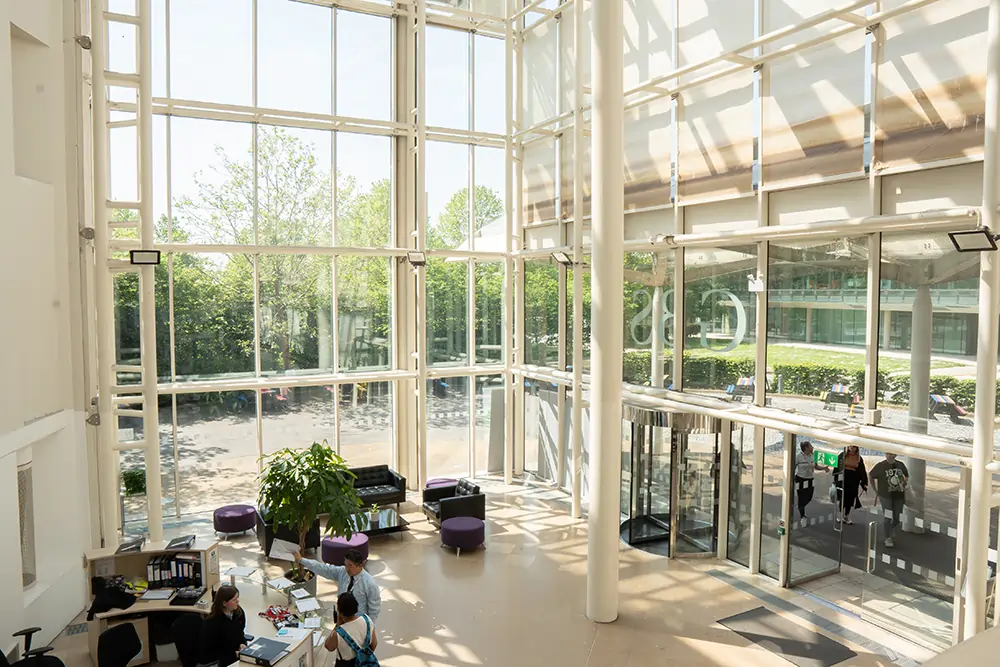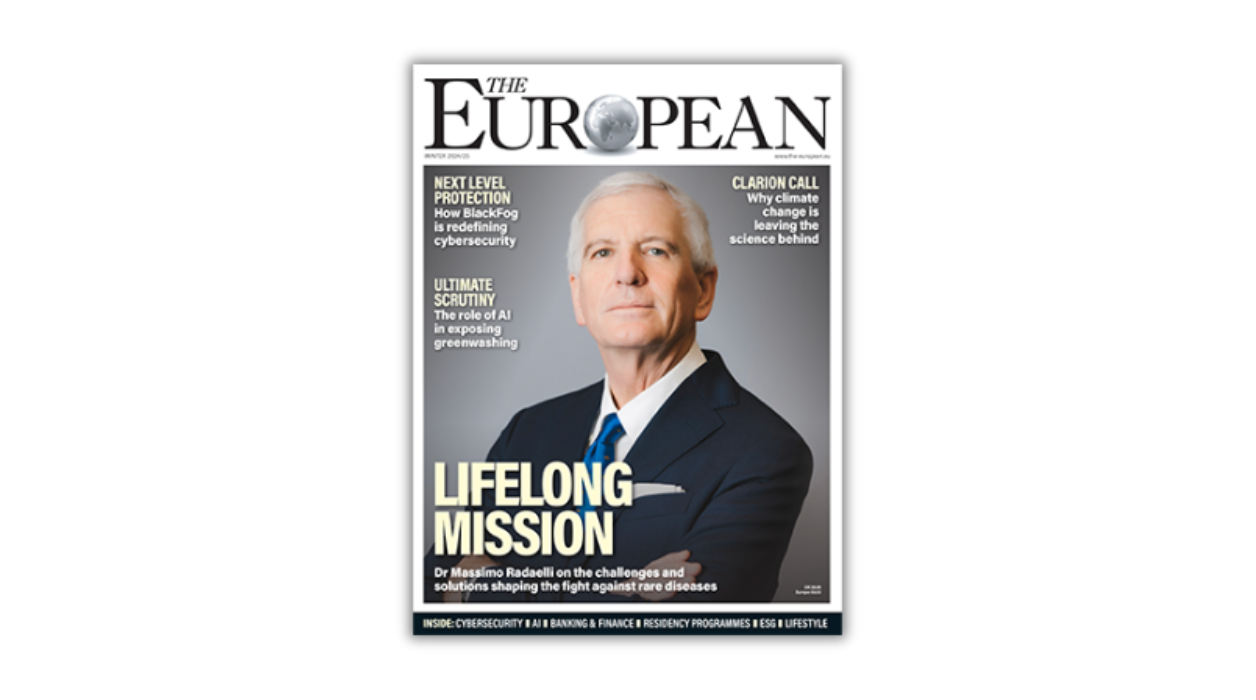From disruption to growth

John E. Kaye
- Published
- Business, Home, Technology
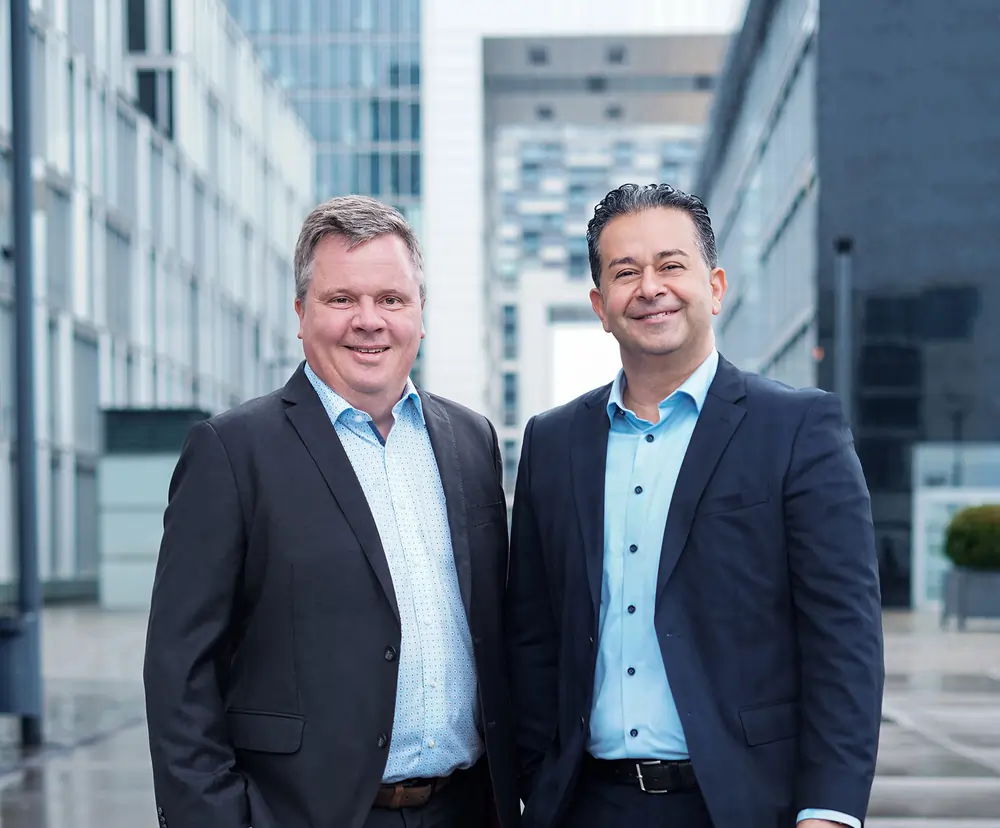
Sustaining nonstop digital transformation
by Kadir Özbayram and Klaus Isenbecker of ins-pi

Effective digital transformation requires Enterprise Architecture Management (EAM) for sustainable success. By implementing EA, businesses can better align their technology and business strategies, optimise operations and enhance customer experience nonstop.
Innovation-driven industries face unique challenges posed by disruptive technologies. To stay ahead of ever-changing market demands and competition, leaders must embrace non-traditional organisational setups, utilising Enterprise Architecture (EA) as a key practice. ins-pi, a specialist in EA and digital transformation, has been recognised as a TOP 100 Innovator in Germany and is among the TOP 1000 fastest growing companies in Europe in 2023. Their innovative operating model, strategy execution, product development and collaborative approach with customers, partners and employees have been instrumental to their success.
Breaking the mould
Enterprise Architecture (EA) has historically focussed on academic approaches such as metamodels and frameworks, losing sight of its primary goal of delivering value to businesses. Legacy EA tools often require complex customisations and integrations with other data sources, and EA teams typically bear the responsibility of architecting the EA tool itself.
ins-pi’s innovative solutions on the ServiceNow platform have disrupted the EA market by revitalising EA’s core purpose and delivering promised value in a non- traditional way. With ins-pi’s technology, EA can now capture the entire enterprise top-down and create a digital twin that aligns business goals and objectives with enhanced efficiency and increased agility. What sets ins-pi apart is that ServiceNow, the platform of the century, provides the operational data that seamlessly connects with the planning data in ins-pi’s solution.
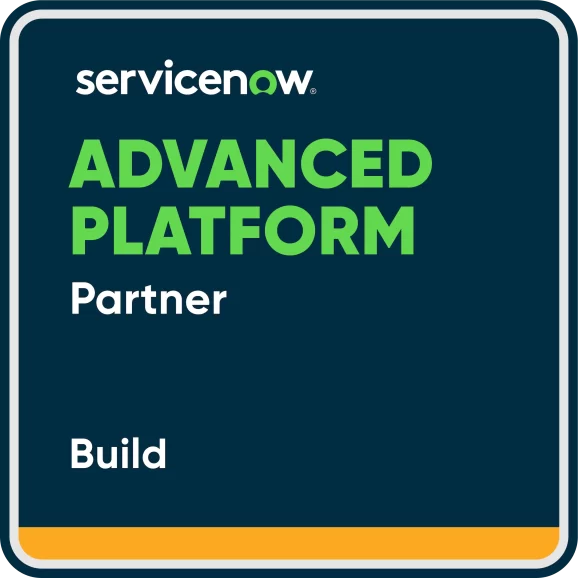
Unlocking the power
Digital transformation is a vital process for organisations seeking to stay competitive in today’s fast-paced digital landscape. It requires a dynamic approach that is both iterative and continuous, with a focus on adaptability and agility. This involves regularly reviewing enterprise goals and strategies, analysing market trends and opportunities, and aligning organisational capabilities to maximise efficiency and profitability while minimising risk.
At ins-pi, we understand the importance of sustainable digital transformation, which is why we are proud to be a ServiceNow Elite and Advanced Platform Partner. Our cutting-edge software solutions are directly embedded in the ServiceNow platform, providing a seamless experience and optimal performance. We take a meticulous approach to every transformation project, working closely with our clients to identify their unique needs and develop sustainable and scalable practices that will ensure long-term success. With ins-pi, you can trust that your digital transformation journey is in good hands.
Who are ins-pi?
A Q&A with Kadir Özbayram and Klaus Isenbecker
What is driving Digital transformation?
Technological advancements are driving the digital transformation of businesses, empowering them to address customer needs better. However, before enterprises can offer customers new business models and products, they must undergo internal transformation. The primary motivation for companies to embark on this extensive
change is to maximise their profit margins. By leveraging emerging technologies, businesses can reduce costs and streamline their processes to stay competitive in the market. In essence, digital transformation is driven by the need to remain profitable and relevant in today’s fast-paced business landscape.
How would one say technology has shaped people’s lives and created new opportunities for organisations?
The success story of ins-pi is a shining example of how technology can create new opportunities in the market. Back in 2015, we were in search of a platform to develop our intellectual property, but we wanted to stand out from the existing solutions and stay ahead of the curve. We decided to bet on ServiceNow as our platform of choice, despite the high risk involved as it was not yet widely known in the market. Initially, we faced some challenges since our target customers were not using this technology.
However, with time, ServiceNow has become a standard tool for most organisations, making it easier for us to position our solutions in the market. We are proud that our customers are now leveraging our disruptive solutions to create new digital services and revenue streams for their own customers. This success underscores the immense potential of digital transformation when executed correctly.
How do you embrace disruption at ins-pi, and do you believe that disruption contributes to digital transformation?
At ins-pi, we believe that embracing disruption means being open to change, experimenting with new ideas and taking calculated risks to stay ahead of the competition while remaining true to our company’s identity and vision. From the outset, we positioned ins-pi as a virtual setup, with people working remotely from all corners of the world. We did not just duplicate enterprises with traditional office setups. Instead, we created a lean and agile business model that did not rely on a company network or servers.
This model proved to be a lifesaver during the recent pandemic when many companies struggled to adapt to remote work. In contrast, we were able to seamlessly continue our operations and support our clients without any hiccups. We believe that being ahead of the curve means doing the right things in advance, so we constantly innovate and stay vigilant for opportunities to improve our business model. Digital transformation should be an ongoing process, not a painful and reactive one that can cause damage to your organisation.
How does ins-pi maintain a culture of innovation and embrace change? And how does this culture help navigate in times of crisis?
Embarking on a journey of innovation requires a strong foundation of core
values to guide your team. At ins-pi, we prioritise success, transparency, respect, honesty, trust and teamwork as our guiding principles. This value set allows us to create a culture of innovation where we encourage experimentation and avoid zombie projects. Our flat hierarchy and collaborative environment ensure that all business units are in sync through the bi-weekly company-wide meetings.
We extend these values and culture to our customers and partners, allowing us to better understand their challenges and adapt our course to provide better solutions. We regularly review our goals and strategies, adjusting them as needed to respond to new market opportunities or challenges. This approach requires leadership skills similar to those of an orchestra conductor, where everyone understands their roles and when to play together versus when to play solo.
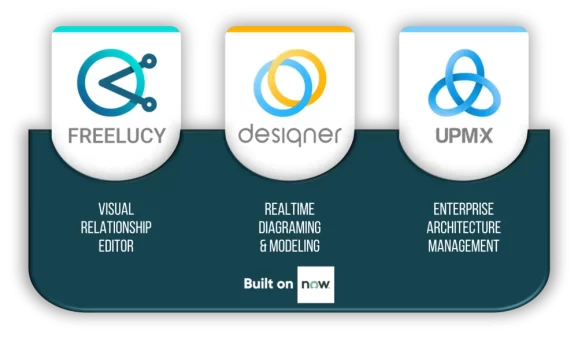
It has been shown that to achieve success in Europe, significant investments must be made beyond ones borders. How does ins-pi address this?
To succeed in today’s market, it is essential
to adopt a global mindset and build a strong global network. It is not just about protecting your revenue streams; it is about embracing cultural diversity as a necessary disruption. European customers and employees come from diverse cultures, speaking different languages and have unique regulatory compliance requirements. Without investing in a network of partners, talent development and intercultural training, it is impossible to remain agile and adaptable to market condi- tions and customer needs.
How do you see technology evolving over the next ten years, and where does ins-pi fit into this vision?
As the trend towards bigger platforms incorporating AI technology continues to gain momentum, the way users interact with and experience these platforms is changing rapidly. At ins-pi, we are part of one of
these bigger platforms and are continuously exploring ways to leverage emerging technologies to enhance our solutions and stay ahead of the curve.
To achieve this, we are closely monitoring the market and testing new ideas and concepts against our business model.
This approach enables us to identify new opportunities and integrate cutting-edge technologies into our solutions, providing added value to our customers.
What are the consequences of not embracing new technologies?
The photography business is a prime example of how companies that fail to embrace new technologies can quickly lose their competitive advantage and disappear from the market. The pace of technological change is only accelerating, and companies that do not keep up, risk missing out on valuable opportunities and failing to meet changing customer demands.
As new technologies are introduced, customer expectations are bound to change, and companies that do not align with this reality may find themselves struggling to remain productive and profitable. Higher costs and reduced efficiency can quickly become a death knell for businesses that are unable to keep up with the pace of change.
Where have you experienced the most resistance, and how did your team respond?
The biggest challenge we faced was implementing a radical change in our product strategy, which made the team apprehensive since it required stepping
out of our comfort zone. It is natural for people to resist change, so it is crucial to time it right and ensure that the team is aligned with the company’s core values. It is essential to recognise that certain changes take longer than others to implement successfully. However, by having the right resources in place, we can facilitate internal communication and make the transition as seamless as possible.
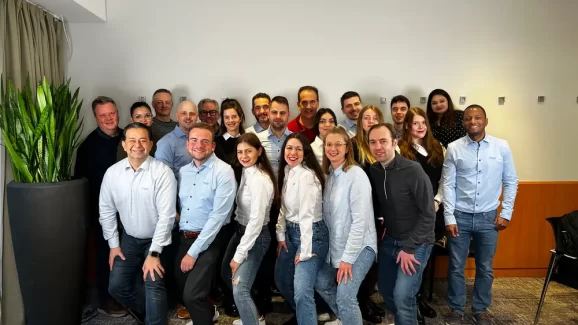
Further information
www.ins-pi.com
[email protected]
+4922032967771
RECENT ARTICLES
-
 Managing cross-border risks in B2B e-commerce
Managing cross-border risks in B2B e-commerce -
 Research highlights rise of 'solopreneurs' as technology reshapes small business ownership
Research highlights rise of 'solopreneurs' as technology reshapes small business ownership -
 Human resources at the centre of organisational transformation
Human resources at the centre of organisational transformation -
 UK government sets up Women in Tech taskforce amid gender imbalance concerns
UK government sets up Women in Tech taskforce amid gender imbalance concerns -
 Liechtenstein lands AAA rating again as PM hails “exceptional stability”
Liechtenstein lands AAA rating again as PM hails “exceptional stability” -
 The Parisian business school quietly reinventing the MBA
The Parisian business school quietly reinventing the MBA -
 UK entrepreneur who founded £1bn firm acquires UAE amateur golf leader to launch world amateur Super League
UK entrepreneur who founded £1bn firm acquires UAE amateur golf leader to launch world amateur Super League -
 Why your home is the best place to teach children leadership
Why your home is the best place to teach children leadership -
 Inside the Spring 2025 Edition of The European
Inside the Spring 2025 Edition of The European -
 The Paris MBA designed for real-world leadership
The Paris MBA designed for real-world leadership -
 Soft2Bet reflects on eight years of leadership and philanthropy in new film featuring CEO Uri Poliavich
Soft2Bet reflects on eight years of leadership and philanthropy in new film featuring CEO Uri Poliavich -
 Global Banking School celebrates ‘milestone’ anniversary
Global Banking School celebrates ‘milestone’ anniversary -
 Saudi Arabia hosts the fourth Riyadh International Humanitarian Forum
Saudi Arabia hosts the fourth Riyadh International Humanitarian Forum -
 New York Congresswoman pushes for Trump’s birthday to be enshrined as federal holiday
New York Congresswoman pushes for Trump’s birthday to be enshrined as federal holiday -
 Red light, green bite: Netflix restaurant opens in Vegas
Red light, green bite: Netflix restaurant opens in Vegas -
 Read our Cybersecurity Focus supplement, featuring insights from Information Security Forum
Read our Cybersecurity Focus supplement, featuring insights from Information Security Forum -
 Davos World Economic Forum 2025: Collaboration for the Intelligent Age
Davos World Economic Forum 2025: Collaboration for the Intelligent Age -
 The European releases its Winter 2024/25 edition
The European releases its Winter 2024/25 edition -
 Read our FDI Focus supplement, featuring insights from Michael Lohan of IDA Ireland
Read our FDI Focus supplement, featuring insights from Michael Lohan of IDA Ireland -
 PizzaExpress to Expand Dough Base Stateside
PizzaExpress to Expand Dough Base Stateside -
 The two core skills middle managers need to navigate stormy weather
The two core skills middle managers need to navigate stormy weather -
 The Role of Financial Regulations in the Online Casino Industry
The Role of Financial Regulations in the Online Casino Industry -
 How to become a game-changer
How to become a game-changer -
 Taking the risk out of BOP ventures
Taking the risk out of BOP ventures -
 Releaf leading the way with marketing
Releaf leading the way with marketing












